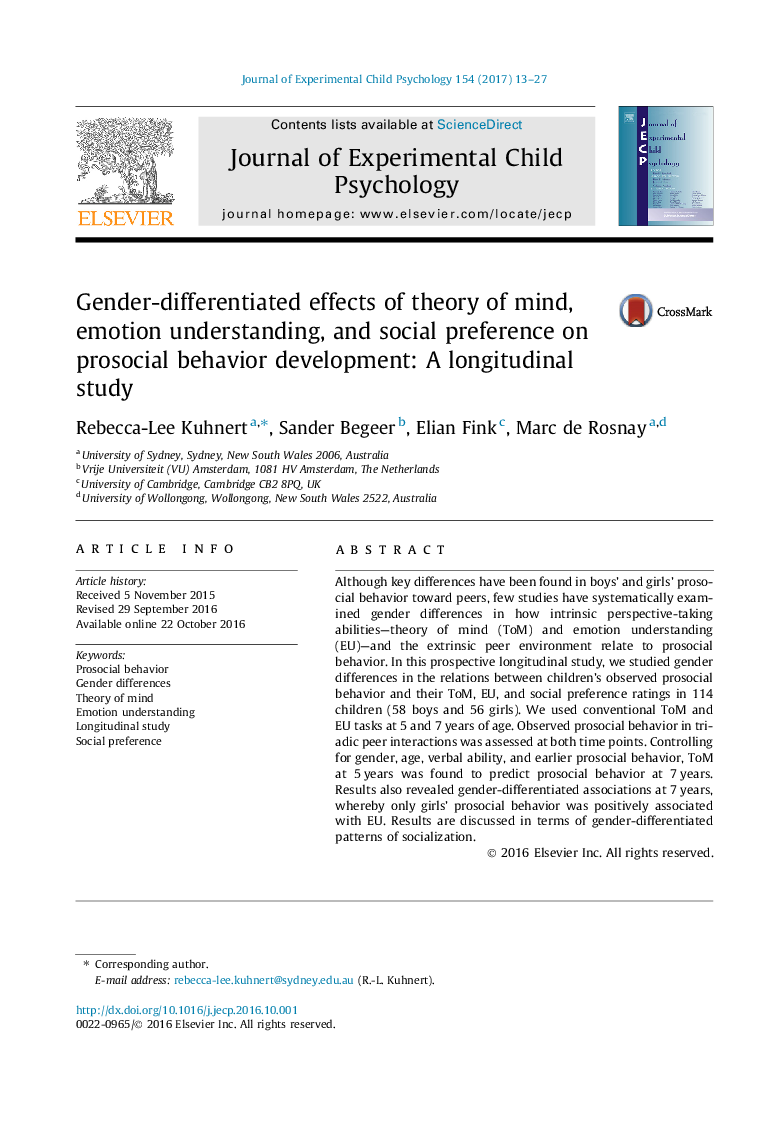| Article ID | Journal | Published Year | Pages | File Type |
|---|---|---|---|---|
| 5040029 | Journal of Experimental Child Psychology | 2017 | 15 Pages |
â¢Gender differences in key variables that influence prosocial behavior are examined.â¢Such variables include theory of mind, emotion understanding and social preference.â¢Theory of mind at 5 years longitudinally predicts prosocial behavior at 7 years.â¢At 7 years, emotion understanding predicts prosocial behavior for girls only.
Although key differences have been found in boys' and girls' prosocial behavior toward peers, few studies have systematically examined gender differences in how intrinsic perspective-taking abilities-theory of mind (ToM) and emotion understanding (EU)-and the extrinsic peer environment relate to prosocial behavior. In this prospective longitudinal study, we studied gender differences in the relations between children's observed prosocial behavior and their ToM, EU, and social preference ratings in 114 children (58 boys and 56 girls). We used conventional ToM and EU tasks at 5 and 7Â years of age. Observed prosocial behavior in triadic peer interactions was assessed at both time points. Controlling for gender, age, verbal ability, and earlier prosocial behavior, ToM at 5Â years was found to predict prosocial behavior at 7Â years. Results also revealed gender-differentiated associations at 7Â years, whereby only girls' prosocial behavior was positively associated with EU. Results are discussed in terms of gender-differentiated patterns of socialization.
